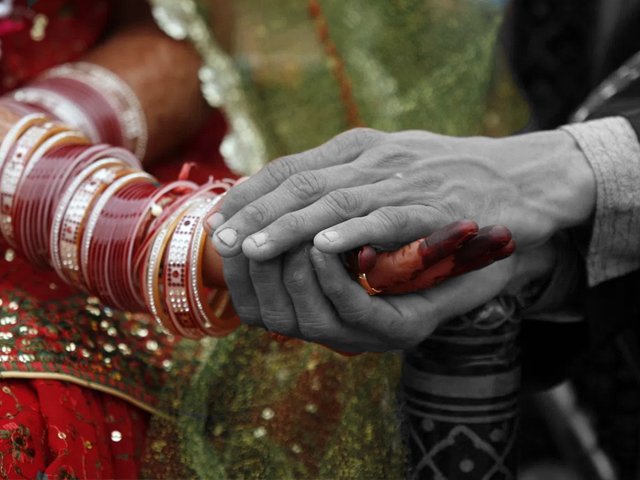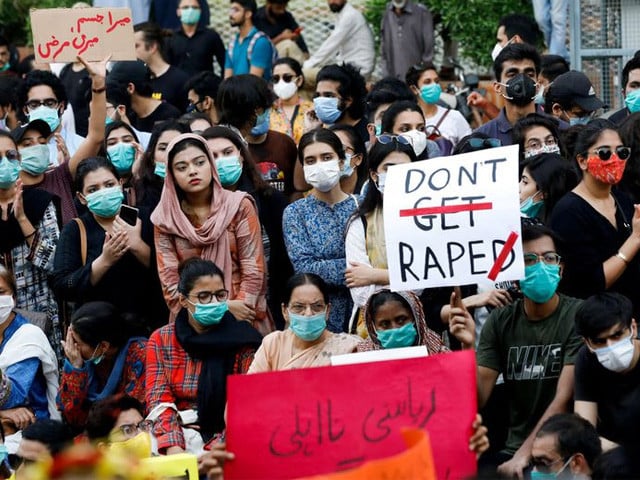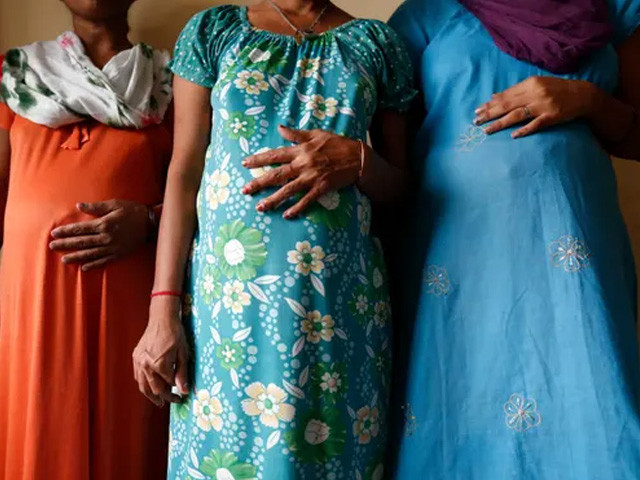
She died on her wedding night because her husband had used iron bars to rape her. ORIGINAL PHOTO: REUTERS
He exercised his right as a husband – he used iron bars to consummate his marriage
For many in Pakistan, marital rape does not exist, for a husband forcing himself onto his wife is his right.
Over the past 10 days, Pakistan’s conscious was set ablaze and shaken up when a picture of seven-year-old Zainab’s dead body went viral on the internet. The minor girl from Kasur had been raped, murdered and then thrown in a heap of garbage. Yes, that is the reality of many countless girls (and boys) in this country. Kasur has already been under the spotlight previously for birthing and remaining the largest child pornography hub in the nation, supplying illegal child porn worldwide, making those very videos by continuously raping young boys and girls.
The one positive thing that we all have seen as a result of Zainab’s unfortunate experience was that the Pakistani public has started to speak out more openly about rape and sexual abuse; there have been several calls from celebrities even to provincial governments that they chow down and punish the perpetrator of this heinous crime in a way that would scare off any potential rapists in the future to commit similar crimes. Regrettably, however, Zainab’s case isn’t the first one of its kind and nor is it the last one. By now, we know that rape cases are quite prevalent in Pakistan, majority of them are not reported and some that make it to social media gain attention that really should be given and dedicated to every single case of this sort. But, it doesn’t.
In the midst of all this chaos, many people found the courage to talk about their personal experiences of sexual abuse. One such case that gained much attention was a tweet from a doctor, Fatima Sheerin, who shared a story of a patient who had died on her wedding night because her husband had used iron bars to rape her. She had succumbed to severe internal injuries that the newly wedded girl bled to death. Since sex is such a taboo subject in most households in Pakistan and there is no concept of sex education in schools, a lot of the Pakistani people grow up having no knowledge about it. Women, especially, are not educated or advised properly before they are married off to people they hardly know, because that’s just how arranged marriages work. In the case that Sheerin shares, it is obvious that what happened there was a classic case of marital rape.


For a lot of people in Pakistan, marital rape does not exist. For is it still rape if it happens between husband and wife? For how can a husband rape his own wife? After marrying her, isn’t he “entitled” to everything, including her body, to do with it as he pleases? Maybe that is why the husband in this case thought the same, as he used iron bars on his wedding night. Many in our society believe that a husband forcing himself onto his wife is no big deal; in fact, it is his right.
Just because he signed a marriage contract, is he immediately “authorised” to brutally treat and murder his wife?
Many people use Islam to justify the act of marital rape; some use the same old rotten cultural excuses of not to address such issues openly because being married is so kosher that if something does become fishy, it is no one’s business except the couple’s to solve. The other popular belief lies in the argument that a man can do no wrong so he shall exercise all his power and might with woman as he pleases.
Moreover, in this society, in addition to being taught that a girls’ end goal is to get married and birth children, they are taught how to be good at it. A “good” wife’s duty is to serve and obey her husband. She is to please him and make him happy, sometimes even at the cost of her own happiness, or in this case, at the cost of her own life. In countless movies and TV shows, women are shown to repress their desires and keep saying no but the man is shown to eventually coax her into it. Women learn from this and expect the same treatment from their husbands, who are to be more tenacious about their desires. As a result, when women are raped within their marriage, even they themselves cannot understand whether that constitutes as forced sex or not.
Due to this cultural misinterpretation, cases of marital rape are often invisible and unregistered, but with the growing number of cases of marital rape, reports from hospitals have shown that married women who come in to see doctors after being sexually abused, face severe kinds of injuries and require close attention and care.
In our Pakistani society, females are advised to stay mum about their experiences of domestic violence even to their families, out of fear that it may end their marriage and that their life as a divorcee would further complicate their lives. It doesn’t help that as a girl living a post-divorce life is not looked upon with the most respectful manner in our society even today. When it comes to marital rape, hardly any female who is a victim and recognises that she is being or has been exploited, can plainly reveal this to her parents, because there is simply not an environment created in the house to talk about such issues, as the woman is not given enough room to voice her thoughts. This is probably why the girl could not talk about it with anyone and she chose to endure the brutal behaviour of her husband. According to the doctor, even after realising the girl had died because of this, her family was thinking about pardoning the husband just because he was related to them and it would bring the family shame:

Considering that the criminalisation of domestic violence is still fairly new in Pakistan, one can safely say that the ineffectiveness of these laws is a direct reflection of the lack of synchronisation and agreement between the society and the state. It is a clear indication of the deep-rooted damages caused by different and social engineering of Pakistan as a state.
There are several aspects of our culture and religion that have stopped us, as a nation, to confront sexual harassment. As responsible citizens and humans, we need to make sure that we create a safe and friendly environment for children and adults at home, alike, so that experiences of any discomfort can be openly spoken about without any guilt. Pakistani parents need to develop a friendly and open relationship with their children so that their children feel comfortable enough at any point in time to talk to them.
More importantly, women in our society need to embed in their minds that it is perfectly okay to say no to your husbands if you do not want to have sex with them. Whatever her reasons may be, she has the right to her own body and no one, not even her husband, has the right to take that away from her. It is not the duty of the woman to please a man, no matter what the society says, a man needs to be taught about this too such that he knows that 'no' means no. This idea and justification of men will be men should be thrown out the window immediately.
The recent cases of sexual violence that have surfaced are an indication of just how badly we need sex education to be normalised and the taboo to be broken so that people are more aware of their bodies, their rights to their bodies and their rights to protect themselves against abuse.
This case is just one of so many; they suffer in silence because a large part of our society refuses to acknowledge them as victims of rape. Would the husband be tried in court for what he did to his wife that led to her agonising death? Or would the parents of the girl pardon the man because they do not want to face the shame this society would wrongfully bestow upon them? In all probability, the man will be set free and he might do it to another woman, another wife. The cycle may never stop and we have no one to blame but the society we live in, where a woman is an object – if you marry her, you own her.




COMMENTS (13)
Comments are moderated and generally will be posted if they are on-topic and not abusive.
For more information, please see our Comments FAQ